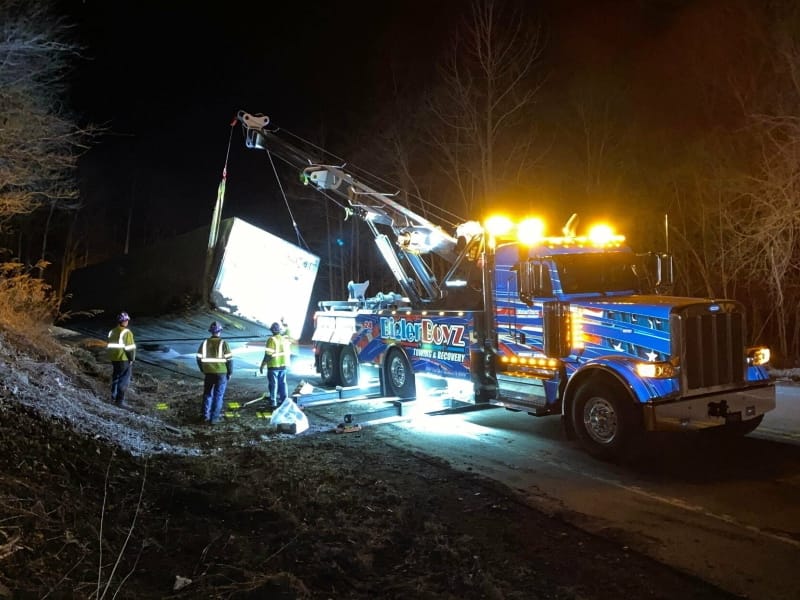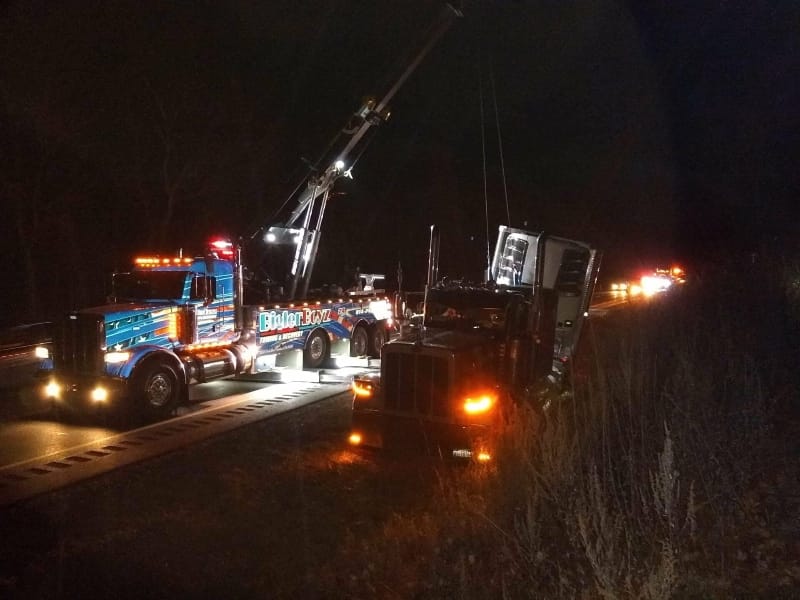Towing After Hours
Most drivers never think about towing until something goes wrong, and often, those problems don’t wait for daylight. Our tow truck operators handled more than a few I-80 emergency towing calls in the dead of night, and let’s just say—things change when the sun goes down. Night towing isn’t daytime work with flashlights. It’s a whole different operation. From visibility issues to safety risks, towing in the dark requires a sharper focus, more patience, and a heightened sense of alertness.

Visibility Drops. So Do Margins for Error.
When we get dispatched to an emergency tow at night, the first thing we adjust is our mindset. Everything looks different in the dark. Headlights and taillights help, but shadows play tricks. A stranded car on the shoulder can disappear behind glare. Lane markings fade. Debris isn’t always visible until we’re right on top of it.
Setting up a safe scene takes more time and more caution. We place cones, use extra lighting, and keep our amber strobes flashing at all times. It’s as much about seeing as it is about being seen by oncoming traffic. Especially on a fast-moving highway like I-80.
Fatigue: The Invisible Risk
Night towing means working against the body’s natural rhythm. After midnight, our reaction times slow down, and fatigue creeps in faster. This is true for everyone on the road, not just us. Drowsy drivers passing by add to the danger, especially when they drift near the shoulder or fail to move over. That’s why we double up on communication during night shifts, checking in frequently, making sure no one in our I-80 emergency towing team is pushing past their limit.
Wildlife, Weather, and the Unknown
I-80 winds through rural areas where wildlife crossings are common. A deer running across the road is a much bigger issue in darkness, where stopping distance shrinks and surprises multiply. Then there’s the weather. Fog, rain, and black ice can all show up with little warning—and they’re far more hazardous at night. We factor all of this into our approach every time we head out on an I-80 emergency towing call after sunset.
What We Do Differently at Night
To manage these risks, we don’t just rely on experience. We adapt our approach in several key ways:
- Stronger lighting: Our trucks carry extra lighting to illuminate scenes completely.
- Two-man crews: For difficult night calls, we sometimes send backup to keep eyes on all angles.
- High-visibility gear: Reflective clothing and vests are non-negotiable for every night shift.
- Slower setups: We take our time staging recoveries to account for reduced visibility and extra hazards.
- Radio and GPS coordination: We stay connected through multiple channels to avoid missteps and ensure help is never far away.

I-80 Emergency Towing: The Road Doesn’t Sleep, and Neither Does Bigler Boyz Towing
At Bigler Boyz, we take every I-80 emergency towing call seriously, especially at night. Towing after dark takes muscle and machinery, it takes awareness, adaptability, and a solid I-80 emergency towing crew that knows how to handle the road at its worst. Night towing may come with its own set of challenges, but it’s part of what we do. That’s why you can always call Bigler Boyz when you need I-80 emergency towing—rain or shine, night or day.

